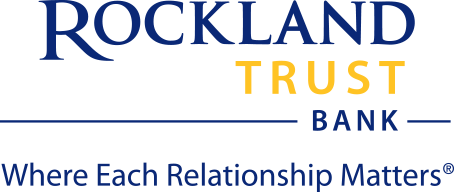

Student loans, car loans, credit card debt, and mortgages. While you can’t just ignore debt in hopes that it goes away, here are some strategies for paying it down:
Before paying down loans, you should always pay yourself first. Automate savings, first to an emergency fund. You can’t be certain what the future holds and should have some savings to fall back on in case of an emergency. You’ll want some financial security in the event you lose your job, for instance.
Next, develop a strategic plan for automating retirement savings. If your employer offers a 401(k) plan with a match, consider contributing at least the minimum necessary to grab that entire match amount. Otherwise, you’re leaving free money on the table. Talk to your human resources representative at work to discuss options for automating your contribution to your 401(k) to help you save for retirement without any extra effort.
While it may seem imprudent to stash away money instead of paying off debt, it’s incredibly important to start retirement savings as early as possible. Because of the effect of compounding growth, you cannot make up for lost time when it comes to growing a retirement nest egg.
You also should consider an investment strategy. Despite popular perceptions of investors, you don’t have to be a millionaire to invest. There are plenty of low cost and low minimum options out there.
Article that May Interest You: Fund for 401(k) on a Cup of Coffee A Day
After saving for retirement, paying off debt can become the priority.
There are a lot of important factors to think about before taking out a loan. With a student loan, for example, consider if it is a federal or private loan because federal student debt does not go away unless it is paid off. While there are specific instances where these loans may be forgiven or discharged, only in rare cases is a federal loan discharged in bankruptcy. In other words, these will have to be paid.
Next, consider the structure of payment and if your paycheck can cover the loan payments every month. Whether it’s a car loan or student loan, be sure to really understand how much the loan will cost each month and if your income can realistically and comfortably cover that expense.
We all know that hindsight is 20/20. If you already have loans, take a look at the interest rate and other terms to help you develop a strategy for paying them off. Consider your monthly cash flow, or income versus outgoing expenses.
But don’t forget to first accumulate an emergency fund, and then automate your retirement savings. With these pieces in front of you, use any extra money to chip away at debt.
There is no one-size-fits-all strategy to debt management. It depends on each individual’s loan profile and their comfort level when it comes to debt.
No matter which method is selected, it is critical to always make at least the minimum payments on loans and credit card debt. One tip for paying off monthly loan bills is to make half payments every two weeks, which equals one extra full payment every year while not having a significant impact on a monthly budget.
If you have extra cash, you’ll have to decide where it makes the most sense to use those funds. One strategy is to pay off the smallest loan first, which can result in positive psychological reinforcement. Another tactic is to pay off the highest interest rate loan first to minimize as much as possible the amount of interest paid over time.
Loans and other debts are all different and understanding those differences can help prioritize which to pay off first.
Credit cards tend to have high interest rates, racking up interest charges if it’s not paid off each month. While loans may have five to eight percent interest, credit cards can be much higher, with rates at 28 (or more) percent. Adding in late fees, it can feel overwhelming. The number one tip for using a credit card is to be sure there is enough cash on hand to pay it off in full each month.
On the other side, there are some types of debt that are considered “good” debt. A mortgage is an example because it’s an investment in a property, enabling the borrower to build equity. People are often homeowners for 30, 40 or even 50 years, which is why this is considered “good” debt.
If you’re looking for the right strategy to manage your finances, talk to one of our experts who will help you understand the impact of cash flow and debt strategies on long-term financial goals.
Unsure about what type of savings account makes the most sense?
Securities offered through LPL Financial, member FINRA / SIPC
Insurance Products offered through LPL Financial or its licensed affiliates.
Get the latest financial tips and advice by signing up to receive our emails.
Rockland Trust Online Banking gives you a variety of services that help you use and manage your accounts, whenever and wherever you want.
* indicates a required field.
Rockland Trust makes it easy to manage all of your accounts with our simple online portals.
Rockland Trust gives you a variety of services that help you use and manage your accounts, whenever and wherever you want.
* indicates a required field.



